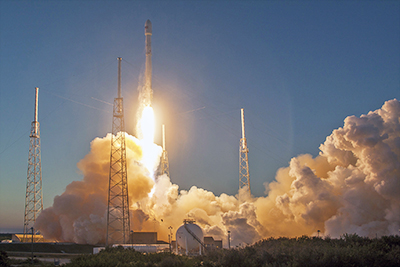Malaysia Airlines is first to adopt global flight tracking
MALAYSIA Airlines has good reason to welcome its new fleet-wide global tracking system developed by international aviation telecommunications specialist SITA.
Malaysia Airlines is the first carrier to adopt SITA’s real-time, space-based alerting system for flight tracking that combines SITAOnAir, Aireon and FlightAware products.
It means Malaysia Airlines has 100 percent global flight tracking of its entire fleet. Aviation analysts see it as a vital step in Malaysia Airlines recovering the global travelling public’s faith after the tragic losses of flights MH17 and MH370 in 2014. 
“Real-time global aircraft tracking has long been a goal of the aviation community,” Malaysia Airlines chief operating officer, Captain Izham Ismail said.
“We are proud to be the first airline to adopt this solution using space-based ADS-B data as part of SITAOnAir’s AIRCOM FlightTracker.”
France-based SITA – originally known as Société Internationale de Télécommunications Aéronautiques – has developed the system to deliver real-time position updates of Malaysia Airlines’ airborne fleet globally to the airline’s aircraft operations centre.
Under the agreement, all Malaysia Airlines aircraft will have access to minute-by-minute, 100 percent global, flight tracking data, delivered by SITAOnAir’s Aircom FlightTracker.
This solution enhances the existing SITAOnAir Aircom FlightTracker by adding Aireon’s space-based Automatic Dependent Surveillance-Broadcast (ADS-B) data to the existing data from FlightAware’s multiple global sources, complementing active Air Navigation Service Provider (ANSP) Future Air Navigation System (FANS) activity data.
Aireon’s space-based ADS-B data will also resolve any existing data feed coverage gaps that remain, particularly over oceanic and remote airspace, where there is currently no surveillance.
No new avionics or modifications are needed for aircraft to use this service.
“With the addition of the AireonSM data, via FlightAware, to SITAOnAir’s Aircom FlightTracker, combined with our active monitoring and automated alerting capabilities, Malaysia Airlines will be at the cutting-edge of real-time flight-tracking technology,” Aircom portfolio director at SITAOnAir, Paul Gibson said.
“With access to up-to-the-minute reporting, Malaysia Airlines will know the location, heading, speed and altitude of all aircraft in its fleet, at all times, and be alerted of any exceptions.”
FlightAware provides a combination of global air traffic control data, aircraft datalink information and terrestrial ADS-B data through a secure streaming data feed. Once the Aireon system is operational, expected in 2018, airlines already using SITAOnAir’s Aircom FlightTracker will automatically begin seeing the new Aireon data appear in their systems, without the need for costly modifications.
“In addition to not requiring any new avionics or modifications to their aircraft, Malaysia Airlines will seamlessly gain real-time flight tracking ability of its fleet, even in areas where regional Air Navigation Service Providers do not have full surveillance,” FlightAware chief executive officer, Daniel Baker said.
“The result will be that Malaysia Airlines will have greater visibility of its aircraft’s exact location.”
Aireon chief executive officer Don Thoma sais, “Malaysia Airlines has taken a lead role in the industry since the tragic events of 2014. Real-time, global flight tracking, anywhere on the planet will further its safety goals, by allowing Malaysia Airlines to track its aircraft anytime, anywhere.” 
Aireon’s space-based ADS-B system will offer a global solution that works for all ADS-B Out equipped aircraft everywhere. ADS-B Out mandates have been passed by ANSPs and industry governing bodies around the world, resulting in operators automatically knowing that their aircraft are properly equipped.
The Aireon service will be operational in 2018, shortly after the completion of the Iridium NEXT satellite constellation. On January 14, 2017, the first ten Iridium NEXT satellites carrying the Aireon ADS-B hosted payload were successfully launched from Vandenberg Air Force Base in California on a SpaceX Falcon 9 rocket.
In total, the constellation will consist of 66 operational low-earth-orbit satellites providing global coverage.
The service will also provide air navigation service providers with global aircraft surveillance capability, and is expected to help reduce fuel costs, increase safety and enable more efficient flight paths.
ends

 How to resolve AdBlock issue?
How to resolve AdBlock issue?